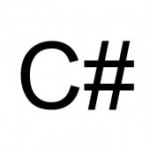Explaining What Action And Func Are
It is a shame that many developers shy away from them, because they don’t really understand them.
Adding Action<> and Func<> to your toolbox is a very important step in improving your C# code.
It’s not really that hard to understand what they do and how to use them, it just takes a little patience…
A simple way of thinking about Action<>
Most of us are pretty familiar with finding sections of repeated code, pulling that code out into a method and making that method take parameters to represent the differences.
Here is a small example, which should look pretty familiar:
public void SteamGreenBeans()
{
var greenBeans = new GreenBeans();
Clean(greenBeans);
Steam(greenBeans, Minutes.Is(10));
Serve(greenBeans);
}
public void SteamCorn()
{
var corn = new Corn();
Clean(corn);
Steam(corn, Minutes.Is(15));
Serve(corn);
}
public void SteamSpinach()
{
var spinach = new Spinach();
Clean(spinach);
SteamVegetable(spinach, Minutes.Is(8));
Serve(spinach);
}
Each one of these methods pretty much does the same thing. The only difference here is the type of vegetable and the time to steam it.
It is a simple and common refactor to refactor that code to:
public void SteamGreenBeans()
{
SteamVegetable(new GreenBeans(), 10);
}
public void SteamCorn()
{
SteamVegetable(new Corn(), 15);
}
public void SteamSpinach()
{
SteamVegetable(new Spinach(), 8);
}
public void SteamVegetable(Vegetable vegetable, int timeInMinutes)
{
Clean(vegetable);
Steam(vegetable, Minutes.Is(timeInMinutes));
Serve(vegetable);
}
Much better, now we aren’t repeating the “actions” in 3 different methods.
Now let’s imagine we want to do something more than steam. We need to be able to fry or bake the vegetables. How can we do that?
Probably we will have to add some new methods for doing that. So we will end up with something like this:
public void SteamVegetable(Vegetable vegetable, int timeInMinutes)
{
Clean(vegetable);
Steam(vegetable, Minutes.Is(timeInMinutes));
Serve(vegetable);
}
public void FryVegetable(Vegetable vegetable, int timeInMinutes)
{
Clean(vegetable);
Fry(vegetable, Minutes.Is(timeInMinutes));
Serve(vegetable);
}
public void BakeVegetable(Vegetable vegetable, int timeInMinutes)
{
Clean(vegetable);
Bake(vegetable, Minutes.Is(timeInMinutes));
Serve(vegetable);
}
Hmm, lots of duplication again. No problem. Lets just do what we did to the first set of methods and make a CookVegetable method. Since we always clean, then cook, then serve, we should be able to just pass in the method of cooking we will use.
Oh wait, how do we do that? We can’t just extract out Bake or Fry or Steam, because the Bake, Fry and Steam methods are logic and not data.
Unless… unless we can make them data. Can we do that?
We sure can, check this out:
public void SteamVegetable(Vegetable vegetable, int timeInMinutes)
{
CookVegetable(vegetable, Steam, timeInMinutes);
}
public void FryVegetable(Vegetable vegetable, int timeInMinutes)
{
CookVegetable(vegetable, Fry, timeInMinutes);
}
public void BakeVegetable(Vegetable vegetable, int timeInMinutes)
{
CookVegetable(vegetable, Bake, timeInMinutes);
}
public void CookVegetable(Vegetable vegetable,
Action<Vegetable, CookingTime> cookingAction,
int timeInMinutes)
{
Clean(vegetable);
cookingAction(vegetable, Minutes.Is(timeInMinutes));
Serve(vegetable);
}
We got rid of the duplicated code the same way we did when we did our first refactor, except this time we parameterized method calls instead of data.
If you understood this, you understand Action<>. Action<> is just a way of treating methods like they are data. Now you can extract all of the common logic into a method and pass in data that changes as well as actions that change.
Congratulations, you are doing the strategy pattern without having to create an abstract base class and a huge inheritance tree!
So when you see Action<>, just think “ah, that means I am passing a method as data.”
It really is as simple as that.
Action<Vegetable, CookingTime> translated to English is: “A method that takes a Vegetable and a CookingTime as parameters and returns void.”
What about Func<>?
If you understand Action<>, you understand Func<>.
Func<X, Y, Z> translated to English is: “A method that takes an X, and a Y as parameters and returns a Z”.”
The only difference between Action<> and Func<> is that Func<>’s last template parameter is the return type. Func<>s have non-void return values.
Bonus: Predicate<> is a Func<> that always returns a boolean.
That’s all there is to it. There really isn’t a need to know much more than that to make sure of Action<> and Func<> in order to start using them.
If you are interested in some other ways to apply Action<> and Func<>, here are some posts I have written which focus on them.
- Pulling out the Switch: It’s Time for a Whooping
- Parsing Columns Like a Ninja
- The Power of Func<>
- Super Combo: Map + Function Pointer
As always, you can subscribe to this RSS feed to follow my posts on Making the Complex Simple. Feel free to check out ElegantCode.com where I post about the topic of writing elegant code about once a week. Also, you can follow me on twitter here
References: Explaining What Action<> And Func<> Are from our NCG partner John Sonmez at the Making the Complex Simple blog.


